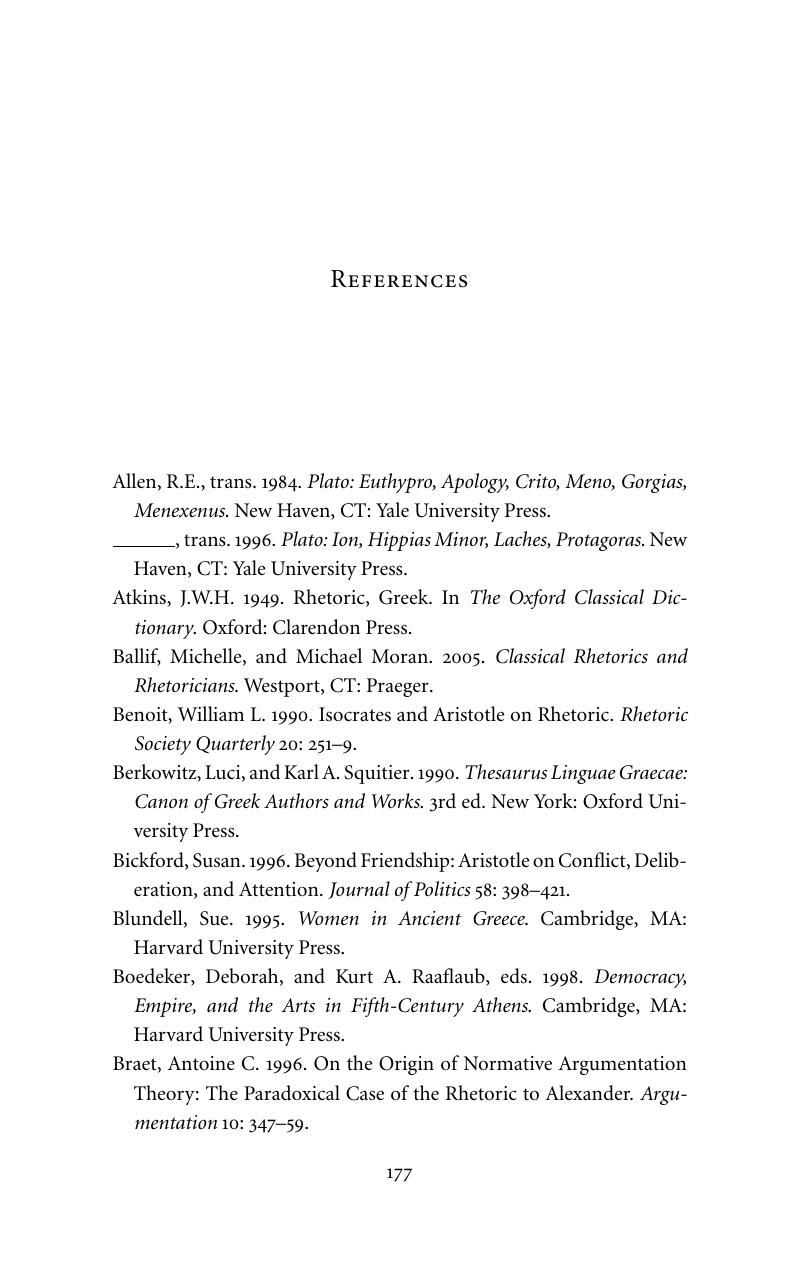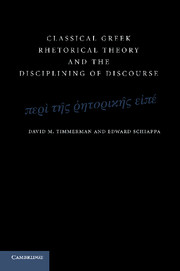Book contents
- Frontmatter
- Contents
- Acknowledgments
- 1 INTRODUCTION: Terms of Art as a Focus in the History of Rhetorical Theory
- 2 DIALEGESTHAI AS A TERM OF ART: Plato and the Disciplining of Dialectic
- 3 PHILOSOPHIA AS A TERM OF ART: Recovering Isocrates
- 4 TERMS OF ART FOR PUBLIC DELIBERATION: Dēmēgoria and Symboulē
- 5 TERMS OF ART AND THE INTERPRETATION OF TEXTS: The Disciplinary Status of the Rhetoric to Alexander
- 6 TERMS OF ART AND INFERRING THEORY: When Did the Parts of a Speech Become Formalized?
- 7 EPILOGUE
- References
- Index
- References
References
Published online by Cambridge University Press: 06 July 2010
- Frontmatter
- Contents
- Acknowledgments
- 1 INTRODUCTION: Terms of Art as a Focus in the History of Rhetorical Theory
- 2 DIALEGESTHAI AS A TERM OF ART: Plato and the Disciplining of Dialectic
- 3 PHILOSOPHIA AS A TERM OF ART: Recovering Isocrates
- 4 TERMS OF ART FOR PUBLIC DELIBERATION: Dēmēgoria and Symboulē
- 5 TERMS OF ART AND THE INTERPRETATION OF TEXTS: The Disciplinary Status of the Rhetoric to Alexander
- 6 TERMS OF ART AND INFERRING THEORY: When Did the Parts of a Speech Become Formalized?
- 7 EPILOGUE
- References
- Index
- References
Summary

- Type
- Chapter
- Information
- Publisher: Cambridge University PressPrint publication year: 2010



